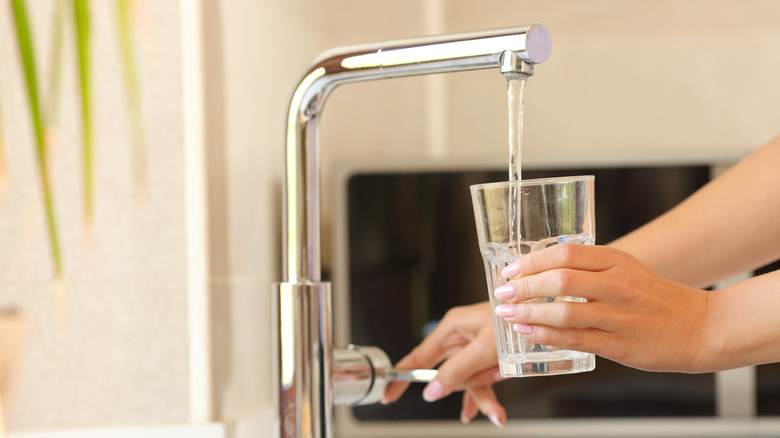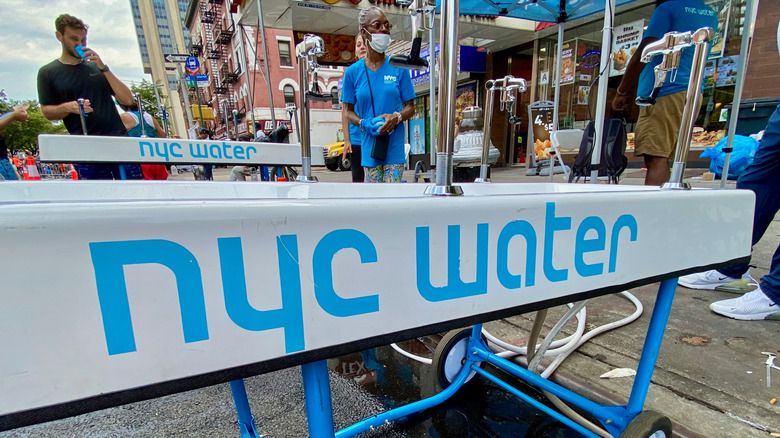The State With The Dirtiest Tap Water In America Is Home To Iconic Cities, Mountains, And Landmarks
Most tap water around the United States is safe to drink, but the safety of each faucet's stream can be questionable from state-to-state. While a lot of people worry about whether it's safe to drink hotel tap water abroad, or if they'll find drinkable water in Europe during their upcoming trip, it's also a good idea to look at water quality and sources a little closer to home.
Clearly Filtered, a U.S.-based water filter company, recently conducted a study using data from the Environmental Protection Agency (EPA), Environmental Working Group (EWG), and various other organizations to determine the states with the dirtiest tap water. Topping that list is New York, with more than 365,800 acute EPA water quality violations and over 10,100,000 health-based violations. So, as it turns out, you might want to think twice before running that faucet, or asking for still instead of sparkling during your next restaurant visit.
According to the EWG, close to 190 drinking water systems in New York contained high levels of toxic chemicals between 2023 and 2024. Syracuse, for example, found incredibly high traces of lead in its tap water after an EPA-mandated monitoring which discovered levels up to four times higher than their lead action level, which is set at 15 parts per billion. Considering the state's water systems serve over 1.3 million people — from the bustling city to the scenic, upstate mountains — it makes sense to be concerned.
What does this mean for New Yorkers?
Whether you're visiting the Empire State Building — considered the happiest tourist attraction in the northeast — or checking out the fall foliage in the Adirondack mountains, there's a likely chance you'll come across tap water at some point. Thankfully, as the quality worsens, the EPA is starting to take action. According to Newsweek, in June 2025, the federal company issued a $1.25 million fine to Westchester Joint Water Works (WJWW) and three municipalities for violating the Safe Drinking Water Act (SDWA) and supplying users water with chemicals linked to potential cancer risks. After they settled, it was determined that WJWW must build a $138 million water filtration plant, taking steps to improve the quality.
While this only covers a portion of New York, it highlights broader concerns across the state. Ultimately, the reality is that these toxic chemicals can have long-term impacts, including cancer and birth defects. And if local water systems are being consistently flagged for chemical toxicities, it's important that residents and visitors take action themselves. For residents, the EPA recommends using at-home filtration — such as charcoal, reverse osmosis systems, and ion exchange resins. Whatever you pick, make sure the product is certified for water filtration. To verify, look for the certification marks "NSF/ANSI 53" or "NSF/ANSI 58" on the packaging, which means they're effective for PFAS reduction.
Meanwhile, for visitors, it's worth noting that most NYC water does meet federal standards, which means it's considered safe to drink — especially for short-term stays. That said, it's always worth checking local water quality reports online to be sure. To take matters into your own hands, you can even consider carrying a portable water filter as an extra precaution.

